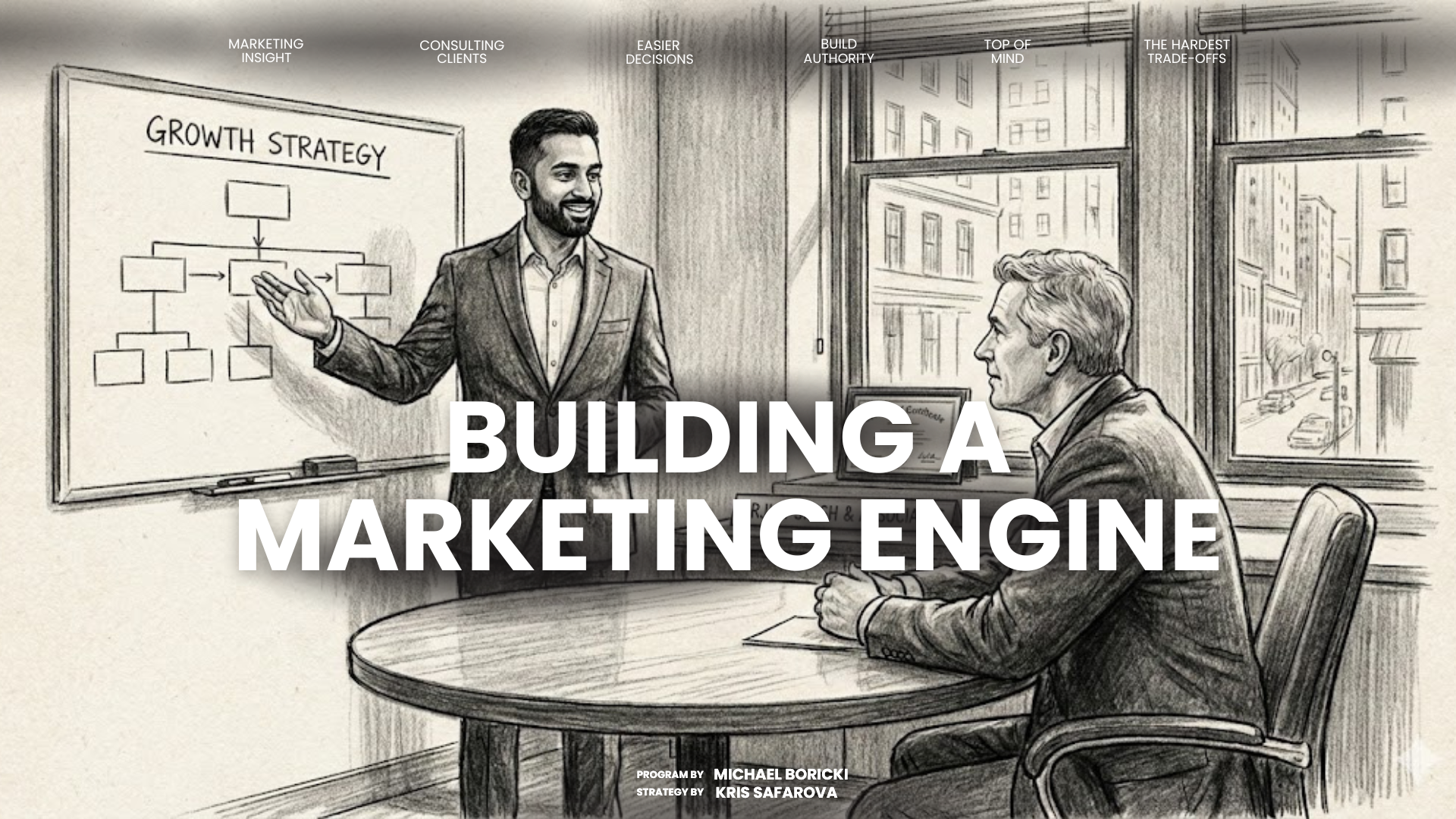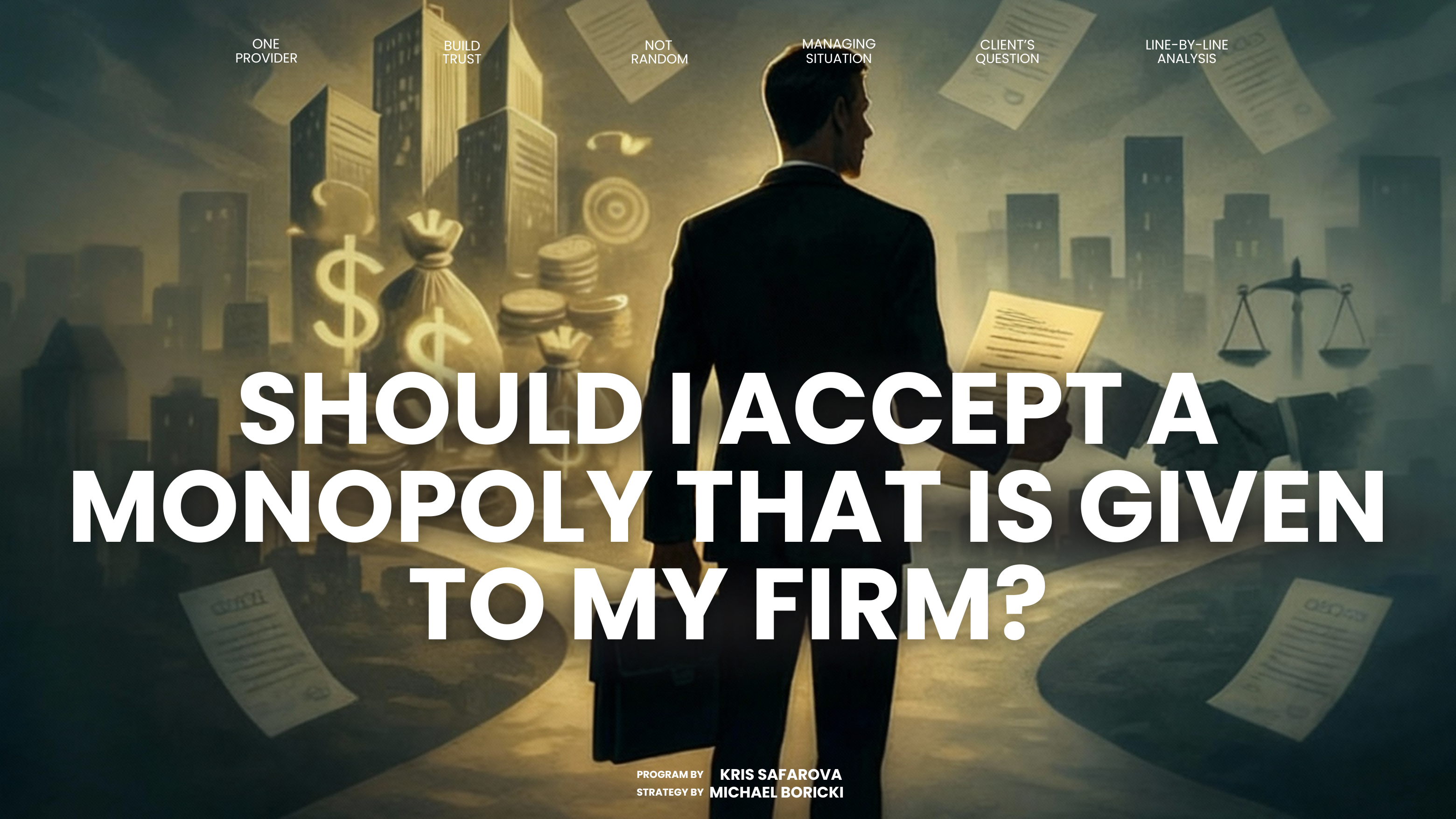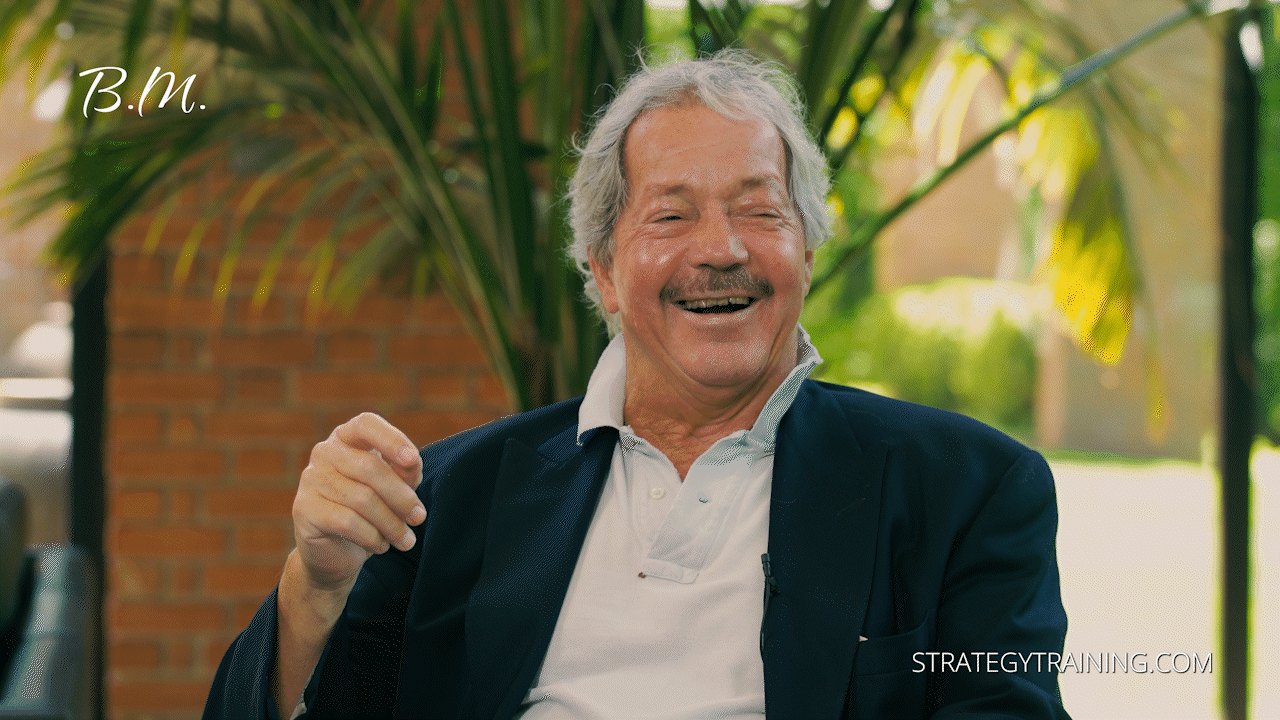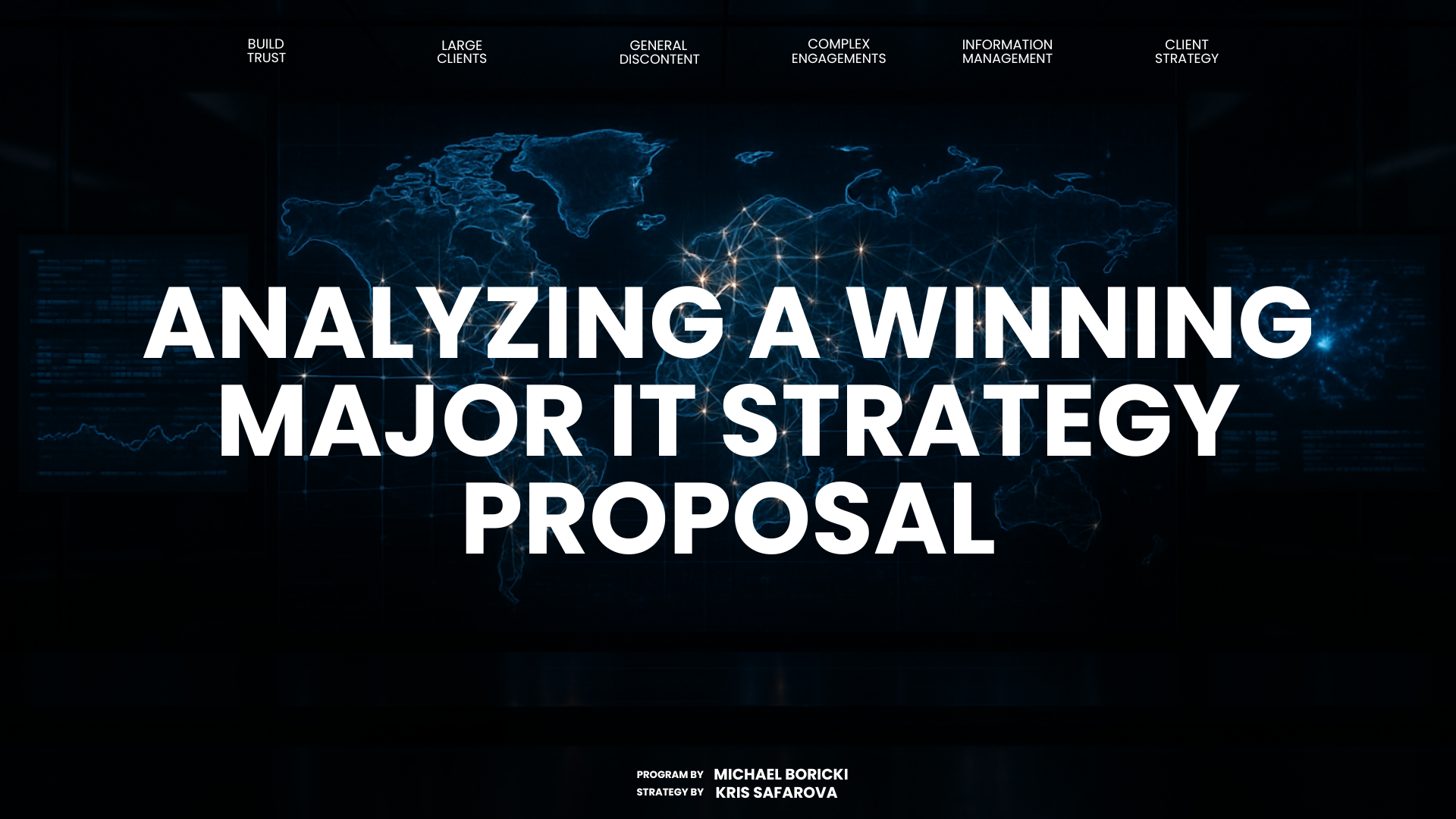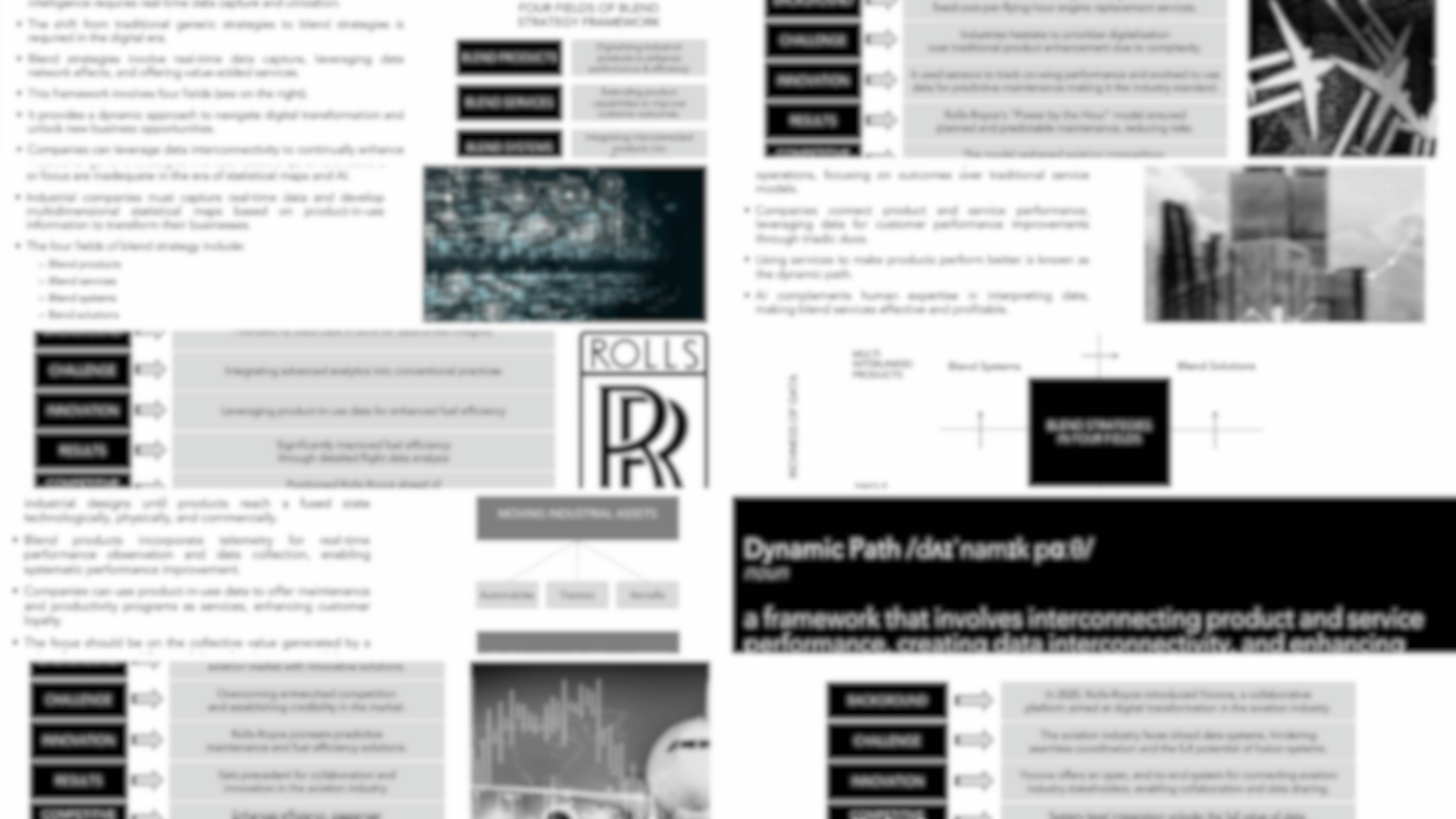New This Week On StrategyTraining.com
“Never be limited by other people’s limited imaginations.”
Yes, Mae Jemison’s is about ambition, but it is also about agency.
In business, industries operate inside long-standing assumptions about what is “feasible,” “common practice,” or “industry standard.” Individually, we often carry a second layer of constraints: the expectations we absorbed from parents, teachers, early managers, ideas about what kind of career is “appropriate,” how far someone “like us” can go, and what level of achievement is “realistic.” These early ceilings are powerful because they feel like facts, not choices.
But in both cases, the constraint is the same: you begin optimizing inside someone else’s frame.
Our aim with each weekly release is to help you dismantle those inherited frames, both the structural limits of your sector and the personal limits that influence how boldly you operate inside it. We work on upgrading the quality of your analysis, your decisions, and the logic you use to understand what is actually possible.
This week’s programs are built for leaders who refuse to let old assumptions, industry assumptions or personal ones, define the size of their ambition or the trajectory of their career. Each release expands your range: how you think, what you can decide, and ultimately, what you can build.
Let’s begin.
For Strategy Control Room Advanced Members
Beyond AI: Where Technology Is Heading – Part 8 of TBD
AI and digital technologies are reshaping asset-heavy industries, shifting the focus from physical capital to data-driven strategies. With examples like John Deere, Tesla, and Cruise, this latest SCRA update from the Center of Excellence shows how innovations such as statistical maps and AI systems are transforming industry standards, driving sustainability, and underscoring the need for digital adoption to stay competitive.
If you are an Insider or Legacy member, we have just approved special access for you at this time. You will be able to enroll in the Strategy Control Room Advanced monthly membership (you will need to get a separate monthly SCRA membership) without having to wait for 6 months to access the advanced library. This is loyalty savings for Insiders and Legacy members in the amount of $1,002. This special access window of opportunity was approved until December 15th, 2025, as of now. Email by December 15th to team@firmsconsulting.com.
For Strategy & Consulting AI system members
We’ve expanded the Strategy & Consulting AI system with the AI Risk & Opportunity Radar. It is a decision tool built to strip away noise and surface what truly matters when an AI trend intersects with your industry. In under a minute, you receive a concise, board-ready view of the three most material opportunities, the three risks that require near-term preparation, and the single highest-leverage first step. Leaders use it to stress-test strategic assumptions, have more thoughtful client conversations, and align teams around what is actually changing in their sector. Strategy & Consulting AI members can access the new AI tool here, along with all other AI tools available within Strategy & Consulting AI membership.
For Insiders
Should I Accept a Monopoly Given to My Firm? – Episode 2
What looks like a routine bidding dilemma is actually one of the critical questions in management consulting. In this program, you’ll see why and learn the principles that determine whether firms and clients rise or fail.
Episode 2: Why we do what we do in consulting: business is not random
What Leaders Need to Know About AI – Episode 2
AI is no longer something leaders can delegate. This program gives non-technical executives and other leaders the core concepts they need to understand. We begin with JSON, not as code, but as a window into how machines make sense of the world. From there, we move through key concepts that help leaders think in systems, speak with technical fluency, and make decisions that align with how AI actually works. This is not as much about learning tools as it is about learning how to lead in a world built on them. This program comes with downloads. Please see a download for episode 1 and 2.
Episode 2: Tokenization: control your AI costs and risks
The Bill Matassoni Show, Season 3 (Part 2 - Nicholas Gertler) – Episodes 14 of 15
In this episode, Bill Matassoni engages in a deep strategic dialogue with Nicholas Gertler, a former McKinsey colleague, on how to redesign systems to create value for all stakeholders. Moving beyond traditional advertising and sales approaches, they explore the role of storytelling and influence as levers to reshape industries, organizations, and relationships.
Filmed at the iconic Philip Johnson Glass House, the conversation challenges leaders to reconsider how value is defined, created, and sustained, and how their own work can drive meaningful, long-term change. The series, now followed by senior leaders and executives from major organizations, offers practical tools to broaden perspective and uncover opportunities often missed by others.
Episode 14: Challenging resentment
For Legacy Members
Legacy members gain access to all Insider content, plus these exclusive episodes:
Building a Marketing Engine - Episode 1 of 3
This program teaches you how small firms can build trust, credibility, and client relationships using the same strategies elite consulting firms use, without needing their size or budget. The approach we teach is not limited to consulting firms.
Episode 1: Brand by association
How to Make Tough Personal Decisions - Episode 8 of 8
What happens when one life-changing decision collides with your other responsibilities? In this program, Michael unpacks a client’s dilemma, three prestigious career paths, and reveals the lens you can use before making choices that shape both your life and theirs.
Episode 8: Two critical pieces of information that are missing
Analyzing a Winning Major IT Strategy Proposal - Episode 3 of 3
When there isn’t one clear crisis to solve but an undercurrent of discontent across the business, how do you uncover where value can be created? In this program, Michael breaks down a winning digital and AI strategy proposal to show how great consultants find, build trust, and deliver value where others feel confused.
Episode 3: An IT strategy or a strategy for IT?
Insiders can upgrade to Legacy at any time and revert to Insider without losing Insider status.
To upgrade: While logged in, select any Legacy program and follow the upgrade prompt.
To return to Insider: Email team@firmsconsulting.com, and we will restore your Insider status, provided there are no gaps in your subscription or gaps are covered.
Legacy Member Q&A — Tailored Partner Feedback
Legacy members may submit one personal or professional question twice per month. A partner will respond with a custom recorded answer.
Submission deadlines:15th and 30th of each month
Format: One paragraph emailed to team@firmsconsulting.com
Include: Relevant context and details so we can provide precise, actionable guidance
Subject line: Legacy Question
Strategy Skills Podcast (ranked among the top 5-10 career podcasts in many countries for over 10 years)
These episodes are now available on iTunes, YouTube, and all major podcast platforms.
Harvard’s Scott Levy on His Path from Investment Banking to Public Education and Leading in Uncertain Times - with Scott Levy
Scott Levy spent two decades as an investment banker at firms like J.P. Morgan, advising corporate boards and senior executives on risk, growth, and capital decisions. Then he pivoted, serving on a public school board, teaching at Harvard, and writing Why School Boards Matter.
In this episode, we discuss:
How Levy broke into investment banking and the lessons that carried him through twenty years on Wall Street
What he learned about resilience, risk-taking, and long-term thinking at the highest levels of finance
Why he left a successful career to focus on public education and democracy
How business principles can, and cannot, be applied productively to education
What executives misunderstand about AI, and the questions they should be asking
Listen to the episode here (you can also watch or read the transcript).
A $3.6B CEO on the “Poverty of Dignity” in Corporate America - with Bob Chapman
Bob Chapman, CEO of Barry-Wehmiller, explains how he built a $3.6 billion company by placing human dignity at the center of leadership. He describes the moment he recognized that “our history does not give us the future that we deserve,” and how this led to a disciplined focus on balance, diversifying customers, industries, and technologies to create a stable enterprise.
Bob recounts the insight that reshaped his philosophy: every team member is “somebody’s precious child,” and leadership is stewardship, not control. Caring, in his view, is an economic principle: “The greatest act of charity is how you treat the people you have the privilege of leading.”
Key insights include:
The role of business-model design in protecting people,
Why pricing should reflect market value rather than internal cost,
How trust and relationships outperform transactional approaches, and
Why growth often emerges from navigating adversity
Chapman argues that today’s crisis is not financial but a “poverty of dignity,” and calls for leaders to build organizations where people know they matter.
Listen to the episode here (you can also watch or read the transcript).
Additionally, here are the recent releases on our YouTube channels (we now have 5 channels in English (and 1 in Russian), so as usual, you get to see us building something from the ground up:
What is Quantum Computing? Only less than 1% of people understand this - with Kris Safarova
Access here.
The Way You Speak Is Learned. Here’s How to Change It - with Kris Safarova
Access here.
99% of Leaders Miss This About AI - with Kris Safarova
Access here.
How to Get More Executive Presence: Communicate with Confidence & Credibility - with Kris Safarova
Access here.
How Elite Consulting Partners Structure Corporate Strategy Engagements - with Kris Safarova
Access here.
IT Strategy vs. Corporate Strategy: Microsoft - with Kris Safarova
Access here.
How to Build Consulting Storyboards in 3 Weeks (This is How McKinsey, BCG, Bain, Deloitte Do It) - with Kris Safarova
Access here.
Management Consulting Storyboard | Storyboarding used by McKinsey, BCG, Bain, Deloitte, PwC et al. - with Kris Safarova
Access here.
McKinsey’s Rise to Prominence Under Marvin Bower - with Kris Safarova
Access here.
If You Want a Major Change in Your Life, This Is What It Takes -with Kris Safarova
Access here.
How to Enroll in Insider, Legacy, Strategy Control Room Advanced or Strategy & Consulting AI
Insider & Legacy memberships: To join: Visit StrategyTraining.com and select the membership that fits your goals. If you would like guidance on which tier is the best fit for you, email team@firmsconsulting.com. To upgrade from Insider to Legacy: While logged in, select any Legacy program and follow the prompt. To return from Legacy to Insider, without losing Insider status, email team@firmsconsulting.com. We will restore your Insider status if your subscription has remained continuous or if any gap has been covered.
Strategy Control Room Advanced (SCRA): If you’re ready for access to advanced reading materials, consider joining The Strategy Control Room Advanced, our private knowledge system (a giant reading library with proprietary materials) used by consulting partners and senior executives in over 150 countries. It’s where we keep the kind of materials consulting firms never share or teach their clients: full studies, blueprints, and proprietary strategy documents that have helped create over $500M in value, including $200M reported by a single client in one year. It’s the closest thing to having your own internal “control room” for strategy, operations, and leadership excellence. You can learn more here. See note for Insiders and Legacy members above.
Strategy & Consulting AI: And if what you are interested in is our AI tools, you can join as a Strategy & Consulting AI member here.
There is always another level of contribution and compensation. We are here to help you reach it.


